The College of engineering, Design, Art and Technology (CEDAT) embarked on the process for reviewing the ways of teaching and learning, research and innovation in order to produce graduates that are well shaped to meet the needs of the society.A two-day strategy workshop was convened from 14th to 15th April 2025 at Imperial Resort Beach Hotel in Entebbe, bringing together academia and others stakeholders, under the Theme; ‘Advancing Education, Research, Innovation for a transformative Future in Engineering, Design, Art and technology’.
The engagement was aimed at advancing the institution’s leadership, management practices, and its core academic functions and discussed strategies for driving excellence and preparing graduates for the job market. It centered on three main objectives: promoting a better understanding of the roles of Academic Leaders and Administrative Heads in carrying out the University’s core functions, enhancing college management through effective customer care, communication, and documentation practices, and advancing teaching, research, and innovation to produce job-ready graduates.
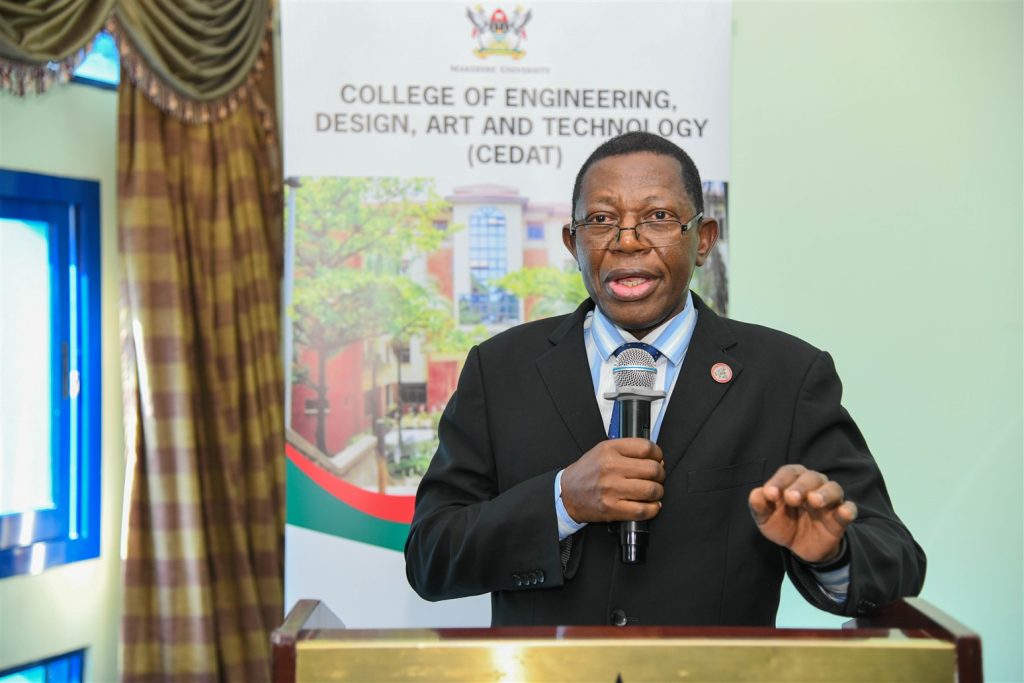
The Vice Chancellor of Makerere University Prof. Barnabas Nawangwe, represented by the Ag. DVC Academic Affairs Prof. MukadasiBuyinzaofficiated at the opening ceremony where he emphasized the need for the CEDAT management to align the strategic redirection of the college to the University 5.0concept which offers guidance towards the evolution of higher education. He highlighted the five elements of the concept that include the integration of advanced technologies and other emerging technologies in teaching and learning. The other element is the human centered approach by placing the interests of human wellbeing and societal needs at the forefront. Addressing sustainable development practices was emphasized with a focus on green technologies and environmental concerns. Innovation and entrepreneurship was emphasized as one way of encouraging problem solving skills in addition to providing accessible learning systems for diverse student needs.
Every university strives to enhance its relevance in societal transformation said Prof. Buyinzaand commended the CEDAT management for taking meaningful steps toward achieving transformative education and innovation, in its efforts to contribute to the nation’s development agenda.The Vice Chancellor acknowledged CEDAT’s crucial role in driving impactful research at the university. However, he pointed out that the results have not met expectations. He stressed the importance of going beyond knowledge generation and data collection to tackle innovation challenges, enhance ideas, and shift focus toward industry and manufacturing. By producing high-quality, standardized products, commercializing them, and venturing into business and trade, and this is when the university can significantly contribute to the economic and social transformation of society, he noted.
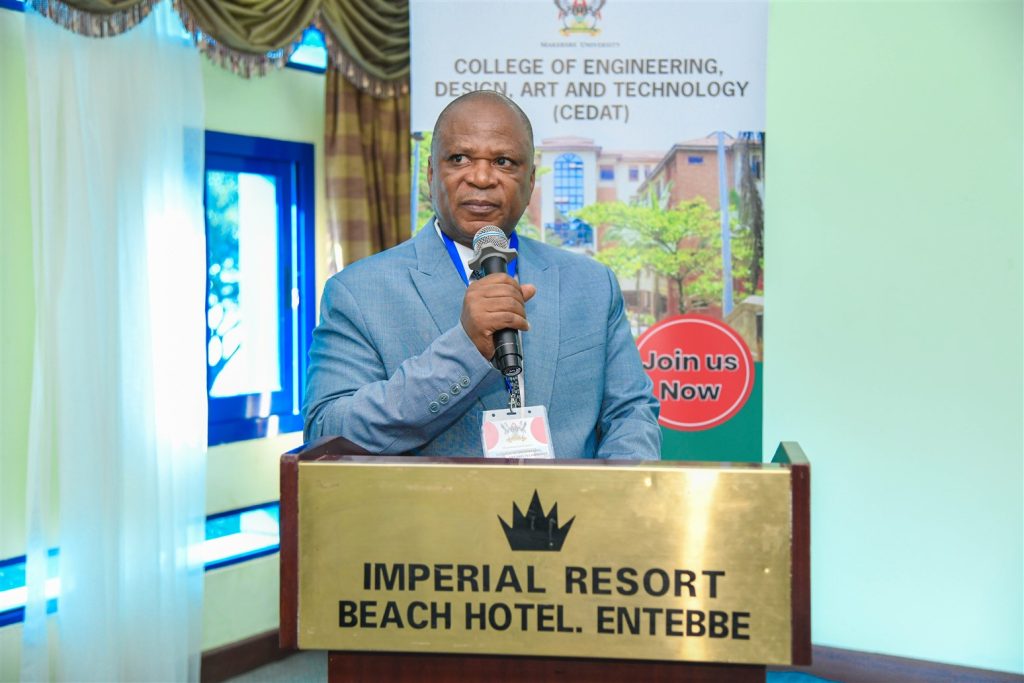
Prof. Moses Musinguzi, the Principal of CEDAT, called for reflection on the college’s impact on society with its 50 years of existence. He urged the CEDAT staff evaluate progress, asking whether they are on the right path and seek ways to amplify their contributions. He emphasized the need for academic leaders to focus on driving change and influencing socioeconomic transformation through university efforts.Prof. Musinguzi highlighted the essential connection between universities and society, encouraging staff to develop solutions that address societal needs. He said inviting industry experts as keynote speakers was intended to explore how their expertise can be adopted and be transformed into visible and meaningful impacts.
The Principal further called for increased alumni involvement as part of efforts to strengthen the College’s impact on society. He stressed the importance of ensuring that alumni recognize and value the support they received during their time at CEDAT.He noted that many former students tend to associate more closely with their halls of residence rather than the college. To address this, he urged staff to create memorable and meaningful experiences for students during their time at CEDAT, fostering a sense of pride and connection, if the college was to get support from the alumni.
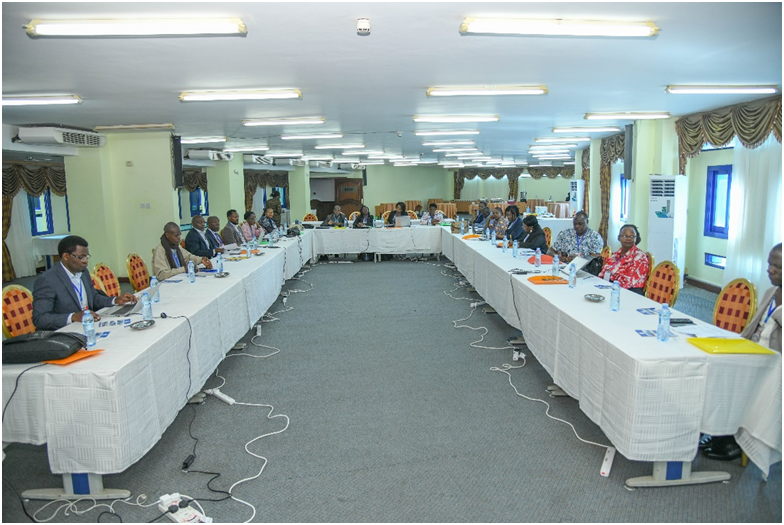
During the strategy meeting, participants conducted a SWOT analysis of the college. Identified strengths included the ability to attract the brightest minds in the country as both staff and students, possession of state-of-the-art laboratory equipment that ranks among the best in Africa, and strong partnerships with professional bodies and associations. Additionally, the College’s dedication to addressing societal challenges through teaching, research, and innovation was recognized as a significant advantage.
However, some weaknesses were also highlighted. These included the need to upgrade infrastructure to keep up with rapid technological advancements, insufficient learning facilities due to the growing student population, limited library and computer lab resources, and the lack of specialized research and training equipment necessary for graduate studies, lack of scholarships for Masters and PhD students which was contributing to the low completion rates
It was agreed that CEDAT has significant opportunities to enhance its role in education, research, and societal impact. Key prospects include leveraging its robust alumni network for career guidance and professional support. The College also stands to benefit from government policies supporting science, innovation, and Uganda’s growing infrastructure development, creating a favorable landscape for progress and growth.
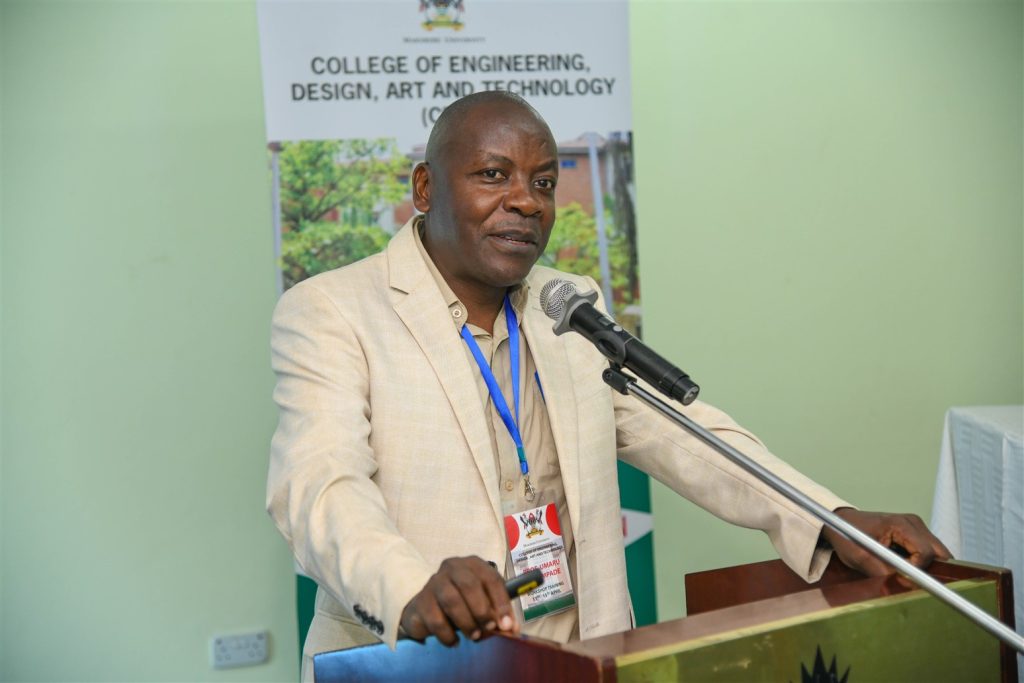
The college aims to align with emerging technologies, including artificial intelligence, to remain at the forefront of innovation. Opportunities also lie in accessing grants specific to engineering specialties, leveraging the interdisciplinary nature of the College for holistic research, and promoting practical, product-based teaching approaches. CEDAT’s two-hour open policy further facilitates productive academic activities.Programs such as industrial placements, mentorship initiatives, and graduate fellowships were also recognized for bridging the gap between academia and community engagement. Efforts to involve PhD students in teaching and research development underscore the College’s commitment to capacity building and innovation. CEDAT continues to showcase its talent through art and design exhibitions, offering possibilities for expanded publications and academic visibility. Plans to develop a museum and further explore technologies in art and design align with initiatives like “Buy Uganda, Build Uganda”
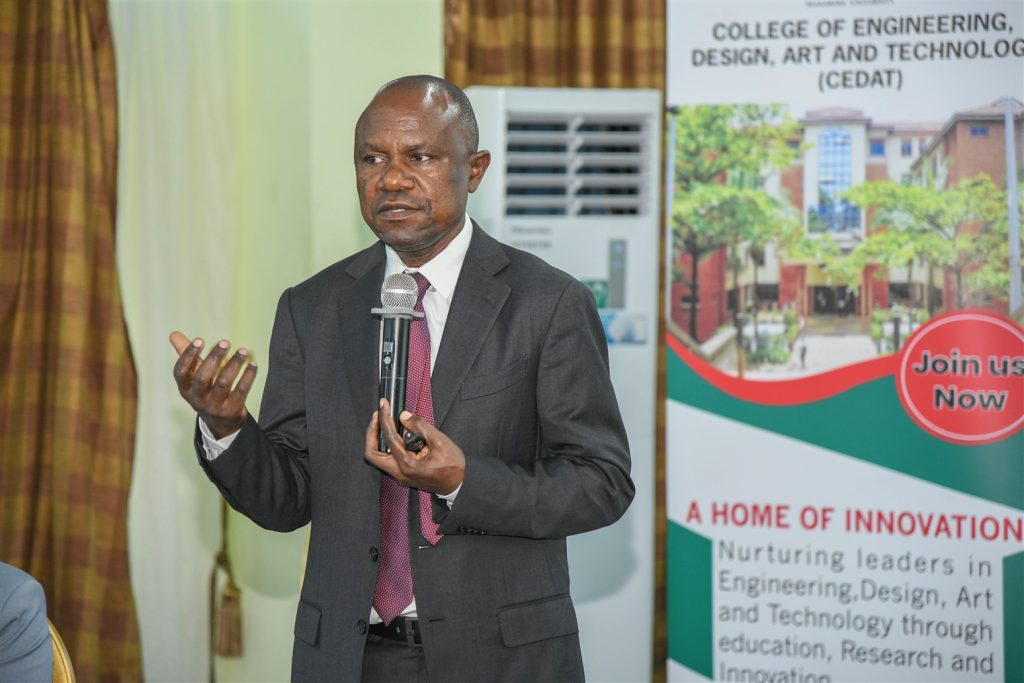
CEDAT faces challenges in adapting to an evolving academic and socio-economic landscape. Key issues identified included curricula lagging behind technological advancements, competition from other institutions, generational cultural differences in teaching diverse student groups, and high graduate unemployment rates indicating a disconnect with industry needs. Additionally, economic uncertainty, reduced donor funding, and gaps between Uganda’s high school and university standards. Addressing these challenges requires innovative strategies to modernize education, strengthen industry ties, diversify funding, and bridge educational gaps.
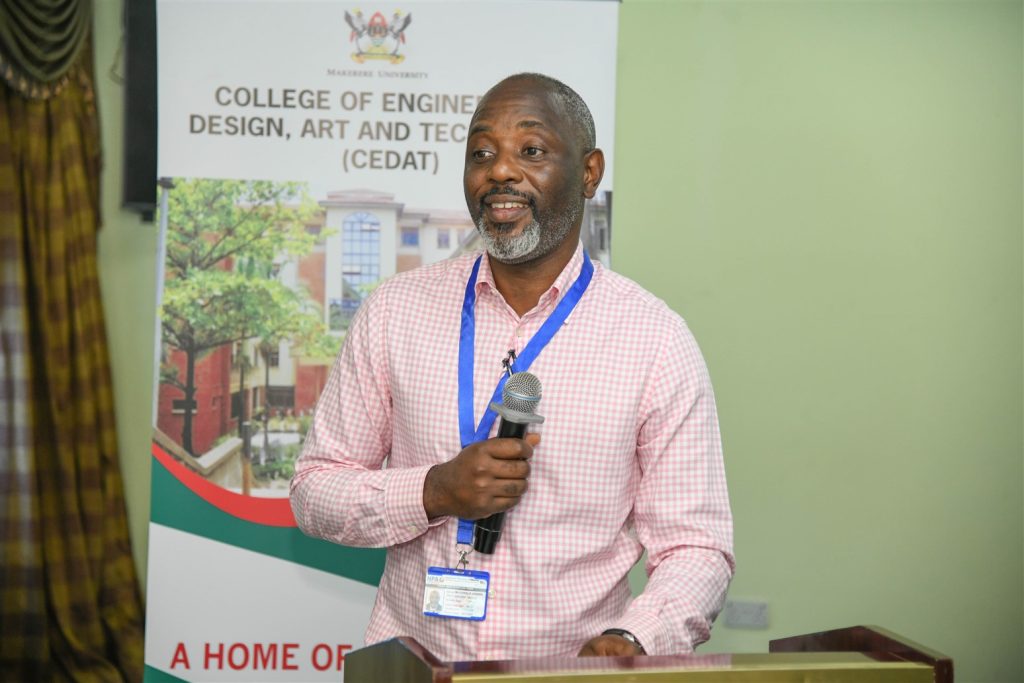
The strategy meeting came up with strong resolutions that will inform the planning and execution of the mandate of the college of Engineering, Design, Art and Technology for the coming period. Some of these include involving the students in the University outreach programs as well as maintenance and repairs of infrastructure, electrical installation, paining and building as one way of exposing them to hands on experiences and part of enhancing industry engagement.

Below is the media reports about the event
Innovation Experts relly Makerere to bridge Uganda’s tech gap (New Vision Report)
UBC Television Uganda report about the event
Written by
Musinguzi Harriet,
Principal Communication officer, CEDAT
